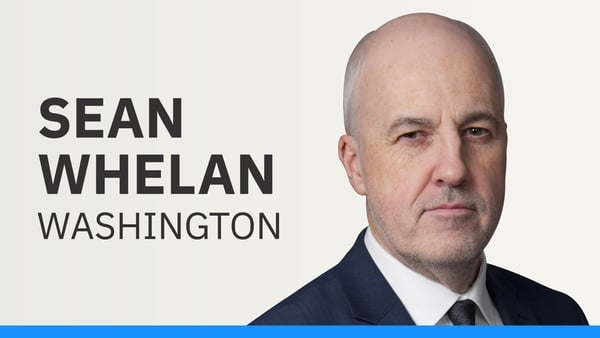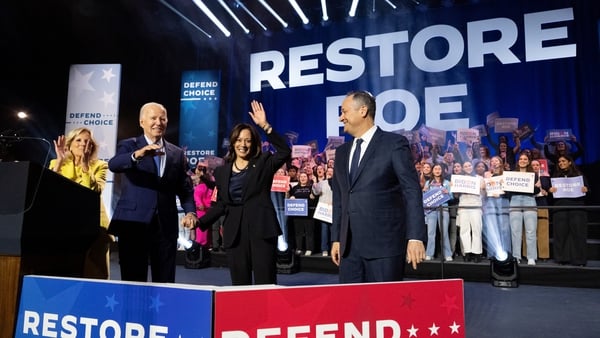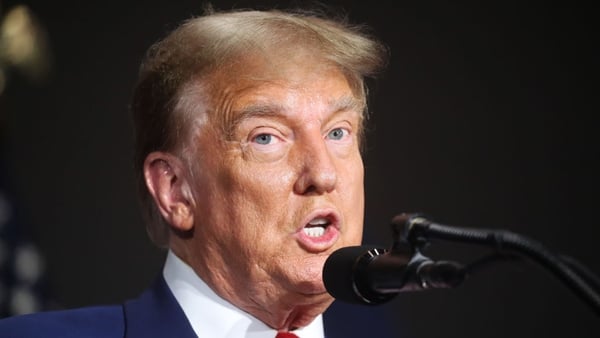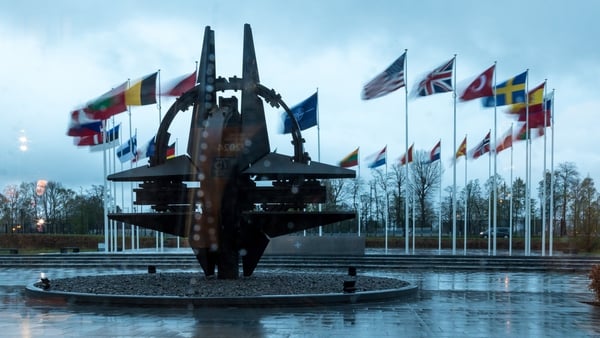One of the deep driving forces behind Brexit has been a sense of alienation amongst many English people - of being left behind, disenfranchised, ignored, exploited.
It's the underlying discontent of a country that contains both the richest capital city, and nine of the ten poorest regions in north-western Europe within its borders.
The disconnect between the "metropolitan elite" and the regions of England in particular was harnessed by the Brexiteers in the referendum, and by Boris Johnson in last year's general election.
It is also fuelling Scottish nationalism - even Welsh nationalism - and is a tributary of the discord in Ulster unionism.
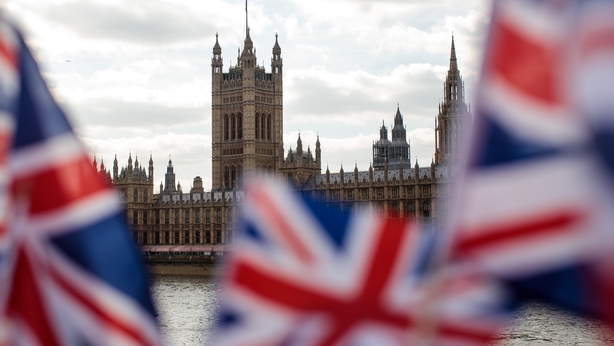
This deep discontent long pre-dates Brexit, or course, and the political system has responded to it since the 1990s with devolution of powers to parliaments and assemblies in Scotland and Wales, as well as the return of a regional assembly in Northern Ireland. England has been more problematic, with a separate national identity re-emerging, but without the political institutions to harness it and direct it.
Instead there is a patchwork of emerging political entities, led by mayors with varying degrees of power. London has been the most prominent and longest established - and proved to be the political launchpad for Boris Johnson.
But Greater Manchester is fast gaining ground as a potential rival municipal power-base to London - and London-based politicians. Its first elected mayor is Andy Burnham of the Labour Party, who swapped a promising career as a cabinet minster under Gordon Brown and a frontbench MP in opposition with leadership aspirations, for the mayorship of this new metropolitan authority.
But such is the size and prominence of Manchester - and such is the opportunity over executive power it has, that Mr Burnham still has leadership potential for Labour.
Indeed last week the Conservative party started to use him to spin against the current leader, Kier Starmer, saying they were now planning for the possibility that they would have to fight the next general election against a Burnham-led Labour Party, such has been the lack of incisive attacks mounted by Mr Starmer on the government.

OK, it's an obvious bit of political taunting, but it is an indication that Mr Burnham remains a big beast in Britain's political jungle.
So we should pay attention to the fact that Andy Burnham and his Liverpool mayoral counterpart Steve Rotheram, took part in an Enterprise Ireland webinar on Thursday.
It was, of course, designed to boost trade between Ireland and post-Brexit Britain, with a special emphasis on exports to the northwest of England.
Enterprise Ireland has set up an office in Manchester, and will soon be joined by a Consulate General, sitting alongside those in Edinburgh and Cardiff and overseen by the Embassy in London.
But what struck me most was the comments by the two mayors on how they want to use their new devolved powers to do their own economic and social development, and not wait for London.
For a start, the two mayors are working together to boost trade - and their first joint trade mission will be to Ireland in September.
Naturally they will be bigging-up the things we know about Liverpool and Manchester - music and football - and are hoping to have representatives from "our four great football clubs" on the mission, according to Andy Burnham.
To which one can only retort that never before in the history of pushing on an open door will the doors of Ireland swing open so easily to a trade mission that is sprinkled with stardust from Manchester United, Liverpool FC, Everton and Manchester City.
In the new-fangled business of regional trade missions, they are going to find it uphill all the way after Ireland in September.
But Andy Burnham was very clear in his contribution about the importance of the new regional politics of England: "If Britain is to succeed as a result of Brexit it will rely on city regions like ours punching their weight internationally. I think we are punching below our weight now because we live in a London-centric country.
"There is a desire from our residents for more power to be based in English regions, to do more for ourselves and strike out more on the world stage."
He is also clear that linking up with Liverpool will give the whole northwest region more of a presence.
And he is clear that trade is not a one-way street: "We want to promote our own businesses, but if we become protectionist we are doomed. People want the best of British, the best of Irish and the best of European, and that is what we are showing by going to Ireland so soon."
Is this the much vaunted (though less seen) "Northern Powerhouse"? Liverpool metropolitan Mayor Steve Rotheram says the phrase was "an artificial construct by (former Conservative Chancellor of the Exchequer) George Osborne to try to respond to the problems we face.
"We are the most politically centralised democracy in the OECD, but have the most unbalanced economy in the whole of Europe. Devolution is a start to address the inequalities and other economic issues we have in our country," he said.
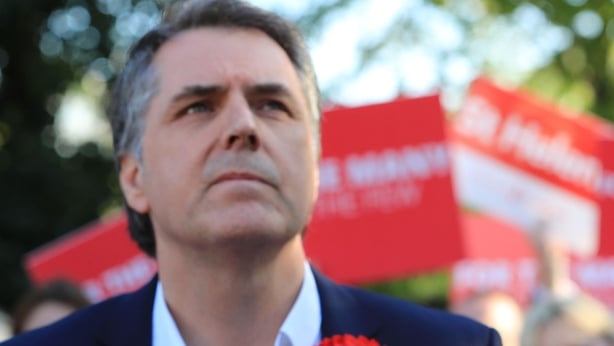
So what's the sales pitch to Ireland from the northwest? According to Burnham and Rotheram, there are opportunities in the post Covid recovery around the green economy and digitalisation.
And they intend taking advantage of the UK government's hosting of the next big UN climate change conference - COP 26 - in Glasgow at the end of the year to burnish their own green-business credentials. In particular with tidal energy and carbon capture and storage projects in the Irish Sea.
"I think we are going to see a green recovery from the pandemic", says Burnham.
"In 100 years' time people will look back on 2020 and see it as a moment of real acceleration towards zero carbon. Governments around the world have to get serious about job creation, and this is the obvious place to start.
"We have to retrofit every property in Greater Manchester - home to five million people - and there are opportunities for thousands of good quality jobs. I grew up in the 1980s and politicians of my generation have never been in a position to tell youngsters in the north west that if they train in a particular skill set they will have a good quality job for life: this gives us the opportunity to say that.
"That's why it's obvious to me that we will see a huge acceleration in the green economy."
He thinks the big presence of Irish construction companies in Manchester right now leaves the Irish well positioned to gain from this move to green energy, insulation and transport.
Steve Rotheram points out that the regional authorities are making their own investments in projects like housing stock.
He says about a third of energy loss and carbon emissions in his city are from Victorian-era housing. Fixing it also tackles energy poverty - poorer people having to spend more on heating.
He also says "transport infrastructure is huge for us - we are trying to get east-west connectivity as well as north-south".
Liverpool is investing in a fleet of hydrogen-powered buses. "This means hydrogen energy becomes important to us, incentivising energy suppliers, working with universities, generating possibilities for partnerships."
Autonomous regional trade policy may be new for England, but the rules of trade are not. One of them - the "gravity theory", that you do most trade with countries closest to you - may be re-asserting itself after years of Brexit-driven denial here.
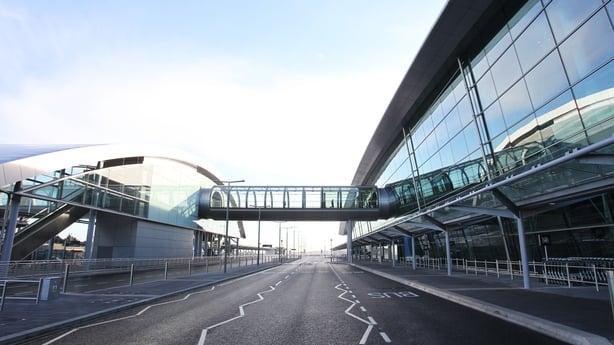
As Mayor Rotheram put it, "Manchester is an hour away from Liverpool, but it's only 25 minutes from John Lennon Airport to Dublin Airport: we need to break down these watery barriers and forge greater links".
Enterprise Ireland's approach to the northwest region may give an insight into official thinking towards post-Brexit Britain.
Despite Brexit, and despite Covid, Irish businesses still see Britain as a growth market, according to a survey of client firms by the agency. 89% of those surveyed saw growth opportunities in Britain, and 80% are planning for expansion themselves.
The survey results kick off a new phase of activity by the agency to target UK growth - having spent much of the past couple of decades trying to persuade Irish firms to look beyond their traditional expansion market. Expect the north of England and Scotland to figure prominently.
So, two strands are coming together - a re-set by Irish trade and business bodies to try and make the best of the post-Brexit situation: and a new determination by British regional authorities, assemblies and parliaments to do their own thing - free from London, not from Brussels.


